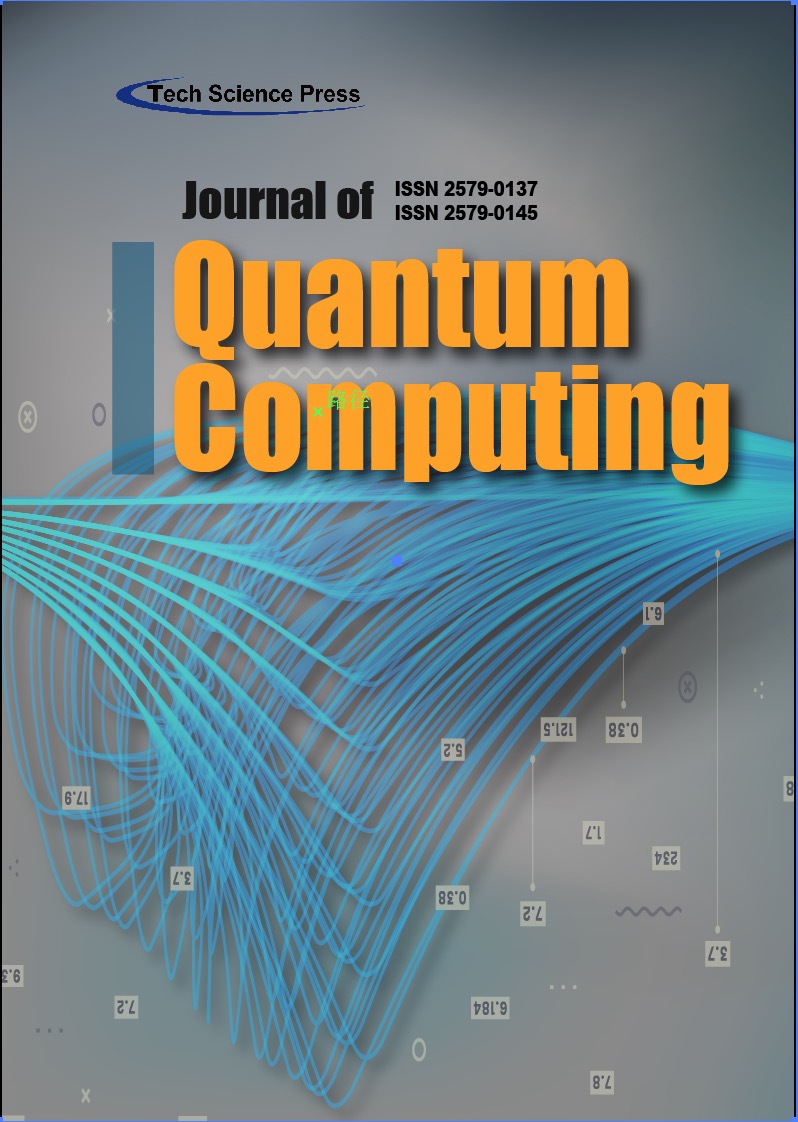
Journal of Quantum Computing is a high-impact, international journal publishing cutting-edge experimental and theoretical research in all areas of Quantum Computing and Information Science. Topics of interest include quantum computer science, quantum machine learning, quantum secure communications, quantum information processing, quantum imaging and networking, quantum cryptography, entanglement and discord, quantum algorithms, quantum error correction and fault tolerance, and experimental platforms for quantum information.
 Open Access
Open Access
ARTICLE
Journal of Quantum Computing, Vol.7, pp. 81-105, 2025, DOI:10.32604/jqc.2025.066064 - 08 December 2025
Abstract Quantum search has emerged as one of the most promising fields in quantum computing. State-of-the-art quantum search algorithms enable the search for specific elements in a distribution by monotonically increasing the density of these elements relative to the rest of the distribution. These kinds of algorithms demonstrate a theoretical quadratic speed-up on the number of queries compared to classical search algorithms in unstructured spaces. Unfortunately, the major part of the existing literature applies quantum search to problems whose size grows exponentially with the input size without exploiting any specific problem structure, rendering this kind of… More >
 Open Access
Open Access
ARTICLE
Journal of Quantum Computing, Vol.7, pp. 55-79, 2025, DOI:10.32604/jqc.2025.068127 - 11 August 2025
Abstract This paper investigates Windfarm Layout Optimization (WFLO), where we formulate turbine placement considering wake effects as a Quadratic Unconstrained Binary Optimization (QUBO) problem. Wind energy plays a critical role in the transition toward sustainable power systems, but the optimal placement of turbines remains a challenging combinatorial problem due to complex wake interactions. With recent advances in quantum computing, there is growing interest in exploring whether hybrid quantum-classical methods can provide advantages for such computationally intensive tasks. We investigate solving the resulting QUBO problem using the Variational Quantum Eigensolver (VQE) implemented on Qiskit’s quantum computer simulator, More >
 Open Access
Open Access
ARTICLE
Journal of Quantum Computing, Vol.7, pp. 39-54, 2025, DOI:10.32604/jqc.2025.064764 - 30 May 2025
Abstract Track finding is a complex optimization problem, originally introduced in particle physics for the reconstruction of the trajectories of particles. A track is typically composed of several consecutive segments, which together form a smooth curve without any bifurcations. In this paper, we investigate various modeling approaches to assess their effectiveness and impact when applied to track finding, using both quantum and classical methods. We present implementations of three classical models using CPLEX, two quantum models on actual D-Wave quantum computers, and one quantum model on a D-Wave simulator. The results show that, while CPLEX provides… More >
 Open Access
Open Access
ARTICLE
Journal of Quantum Computing, Vol.7, pp. 17-38, 2025, DOI:10.32604/jqc.2025.059089 - 08 April 2025
Abstract In the rapidly evolving domain of quantum computing, Shor’s algorithm has emerged as a groundbreaking innovation with far-reaching implications for the field of cryptographic security. However, the efficacy of Shor’s algorithm hinges on the critical step of determining the period, a process that poses a substantial computational challenge. This article explores innovative quantum optimization solutions that aim to enhance the efficiency of Shor’s period finding algorithm. The article focuses on quantum development environments, such as Qiskit and Cirq. A detailed analysis is conducted on three notable tools: Qiskit Transpiler, BQSKit, and Mitiq. The performance of More >
 Open Access
Open Access
ARTICLE
Journal of Quantum Computing, Vol.7, pp. 1-15, 2025, DOI:10.32604/jqc.2025.061275 - 21 March 2025
Abstract Distributed Quantum Computing (DQC) provides a means for scaling available quantum computation by interconnecting multiple quantum processor units (QPUs). A key challenge in this domain is efficiently allocating logical qubits from quantum circuits to the physical qubits within QPUs, a task known to be NP-hard. Traditional approaches, primarily focused on graph partitioning strategies, have sought to reduce the number of required Bell pairs for executing non-local CNOT operations, a form of gate teleportation. However, these methods have limitations in terms of efficiency and scalability. Addressing this, our work jointly considers gate and qubit teleportations introducing… More >